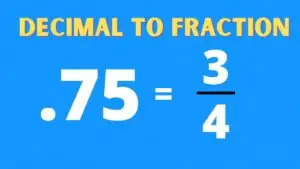Mathematics is a universal language that transcends borders and cultures. It serves as the foundation for various disciplines, from algebra to calculus, and its principles and properties remain constant throughout. In this comprehensive guide, we will explore the fundamental properties of math, their significance, and how they govern mathematical operations. Whether you’re a student tackling the curriculum, an educator designing the hardest math question for your class, or simply curious about math, this guide will provide you with valuable insights into the fascinating world of mathematical properties.

✅ AI Essay Writer ✅ AI Detector ✅ Plagchecker ✅ Paraphraser
✅ Summarizer ✅ Citation Generator
The Significance of Mathematical Properties
Mathematical properties are essential characteristics that hold true for all numbers and mathematical operations. They provide a framework for understanding and manipulating complex equations and problems. By harnessing these properties, mathematicians can simplify equations, make calculations more efficient, and derive meaningful insights.
The Universal Language of Math
Universal Language
Mathematics acts as a universal language that can be understood and communicated across different cultures and languages. While spoken languages may differ, the principles and rules of math remain the same. This universality allows mathematicians to collaborate and share knowledge seamlessly.
Numbers in Mathematics
Real numbers encompass natural numbers, rational numbers, whole numbers, integers, and negative numbers. Understanding the properties of real numbers is fundamental to comprehending the broader properties of math.
Fundamental Properties of Math
The Commutative Property
The commutative property states that the order of numbers in addition or multiplication does not affect the result. For example, in addition, a + b = b + a, and in multiplication, a × b = b × a. This property allows for rearranging numbers without altering the outcome.
The Associative Property
The associative property declares that the grouping of numbers in addition or multiplication does not impact the final result. In other words, (a + b) + c = a + (b + c) in addition, and (a × b) × c = a × (b × c) in multiplication. This property allows flexibility in how numbers are grouped together.
The Distributive Property
The distributive property enables the distribution of a number across an addition or subtraction equation. For instance, in the equation a × (b + c), the number a can be distributed to both b and c, resulting in a × b + a × c. This property plays a crucial role in simplifying complex equations and expressions.
The Identity Property
The identity property states that the introduction of identity elements, such as 0 in addition and subtraction, and 1 in multiplication and division, does not change the value of the number. For example, 5 + 0 = 5 and 3 × 1 = 3. Identity elements play a vital role in maintaining the integrity of mathematical operations.
Importance of Understanding Math Properties
Comprehending the properties of math is crucial for various reasons:
- Problem Solving: Mathematical properties aid in solving complex equations by simplifying and manipulating them effectively. By utilizing these properties, mathematicians can derive solutions efficiently.
- Conceptual Understanding: Understanding math properties enhances overall comprehension of mathematical concepts. It provides a solid foundation for further learning and application in advanced topics.
- Mathematical Proficiency: Proficiency in math properties equips individuals with valuable skills for real-life situations that involve calculations, problem-solving, and logical reasoning.
The Role of Math Tutors
Mathematics can be challenging for many students, and seeking the guidance of a math tutor can be immensely beneficial. A math tutor can provide personalized assistance, clarify concepts, and help students improve their grades. Here are some instances where considering a math tutor is advantageous:
- Consistently Low Grades: If you consistently struggle with low grades in math class, a math tutor can identify areas of weakness and provide targeted support.
- Difficulty Understanding New Concepts: When new math concepts become overwhelming, a math tutor can break them down into digestible parts and guide you through the learning process.
- Feeling Overwhelmed or Stressed: If you feel overwhelmed or stressed about math, a math tutor can alleviate anxiety by providing a supportive learning environment and tailored guidance.
Conclusion
Mathematics is a universal language with properties that remain constant across cultures and languages. Understanding the properties of math, such as commutative, associative, distributive, and identity properties, is crucial for grasping complex mathematical concepts and problem-solving. By harnessing these properties, mathematicians can simplify equations and make calculations more efficient. If you’re struggling with math, consider seeking the assistance of a math tutor who can provide personalized support and help you achieve your goals. Embrace the properties of math, and unlock the potential of this universal language in your educational journey.
FAQ
What are the basic properties of math?
The basic properties of math include the commutative property, associative property, distributive property, and identity property. The commutative property states that the order of numbers in addition or multiplication does not affect the result. The associative property declares that the grouping of numbers in addition or multiplication does not impact the final result. The distributive property allows the distribution of a number across an addition or subtraction equation. The identity property states that the introduction of identity elements, such as 0 in addition and subtraction, and 1 in multiplication and division, does not change the value of the number.
Why are math properties important?
Math properties are important because they provide a framework for understanding and manipulating complex equations and problems. By utilizing these properties, mathematicians can simplify equations, make calculations more efficient, and derive meaningful insights. Understanding math properties enhances conceptual understanding and aids in problem-solving.
Are math properties the same across different branches of math?
Yes, math properties are the same across different branches of math. Whether you’re dealing with algebra, calculus, geometry, or any other branch of math, the fundamental properties remain constant. The commutative property, associative property, distributive property, and identity property apply universally and are essential for mathematical operations in all branches.
How can math properties be used to solve complex equations?
Math properties can be used to solve complex equations by simplifying and manipulating them effectively. For example, the commutative property allows rearranging numbers in an equation without altering the outcome. The associative property enables flexibility in grouping numbers. The distributive property helps in simplifying expressions by distributing a number across an addition or subtraction equation. By applying these properties strategically, mathematicians can simplify equations, making them easier to solve.
When should I consider finding a math tutor?
You should consider finding a math tutor under various circumstances. If you consistently struggle with low grades in math class, a math tutor can provide personalized support and help identify areas of weakness. If you find it difficult to understand new math concepts, a math tutor can break them down into manageable parts and guide you through the learning process. Feeling overwhelmed or stressed about math is another sign that seeking a math tutor could be beneficial. A math tutor can provide a supportive learning environment, alleviate anxiety, and offer tailored guidance to help you overcome challenges and improve your understanding of math concepts.
Follow us on Reddit for more insights and updates.





Comments (0)
Welcome to A*Help comments!
We’re all about debate and discussion at A*Help.
We value the diverse opinions of users, so you may find points of view that you don’t agree with. And that’s cool. However, there are certain things we’re not OK with: attempts to manipulate our data in any way, for example, or the posting of discriminative, offensive, hateful, or disparaging material.